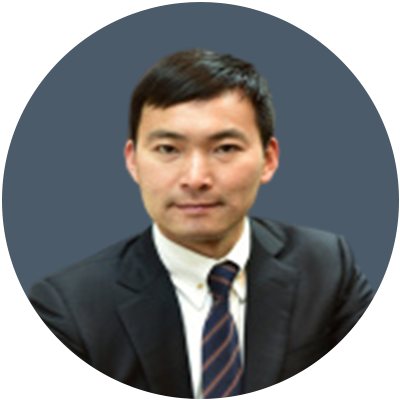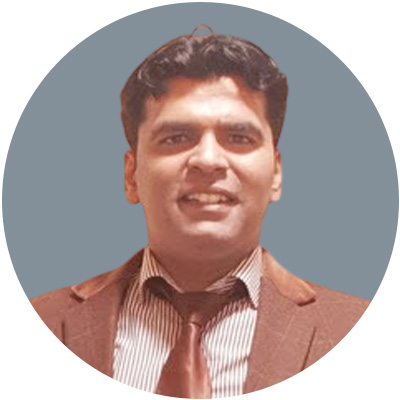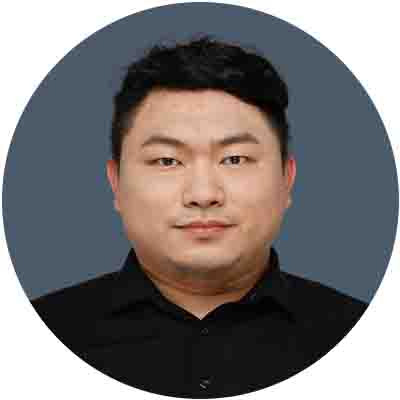
Prof. Weiliang Wang Jinan University, China | Profile:Weiliang Wang, Professor, the Vice Dean of International Energy School, and the leader of the discipline of New Energy Science and Engineering/Energy and Power Engineering. He is mainly engaged in research on "carbon neutral" and energy development strategy, efficient utilization of new generation basic energy, new energy technology development, key technology of large-scale energy storage, and multi-energy complementary integrated energy system. He has been awarded the ASME IGTI Academic Award (Gold), the China Energy Outstanding Young Scientist Award, the Advanced Worker Award of Guodian Institute of Science and Technology, the First Prize of China Electric Power Innovation Award (1/15), the Second Prize of China Energy Innovation Award (1/15), the First Prize of Guodian Institute of Science and Technology Progress (1/7), etc. He is the author of "High-efficiency and Clean Coal-fired Power Generation Technology", etc. He has published More than 40 high-level articles including SCI and EI; more than 30 authorized invention patents. He has long been a reviewer for Applied Energy, Energy, Applied Thermal Engineering, Fuel, Energy and Buildings and other journals.
|
Prof. Saim Memon Birmingham City University, UK | Profile: Professor Saim Memon has world leading multidisciplinary research expertise in Electrical, Mechanical and Renewable Energy Materials Engineering. His specific research experiences are on thermal management of electric vehicles batteries, vacuum insulation, net zero energy buildings, solar thermal collectors, renewable energy technologies, thermoelectric generators and smart-grid integration to electric-vehicles with fast charging battery mechanism.
Professor Saim’s current academic role is as External Examiner in School of Engineering and the Built Environment, Birmingham City University, Birmingham, UK. He taught 41 BEng/MSc modules and supervised over 39 PhD/MEng/MSc & BEng projects. Saim was nominated for Best Supervisor, Outstanding Lecturer and Research in Action Awards by Staff and Students for four consecutive years (2017, 2018, 2019 & 2020) at LSBU. Saim demonstrated and evidenced his excellent track record in Teaching and Supervision practices throughout his career. Saim developed and led a project that engaged local London Engineering students on Solar Car Challenge as part of the IET IMechE Engineering Education Grant Scheme. Saim also organised and chaired international and national conferences. Saim was the founder of DEEE Society at LSBU for students’ academic-industrial engagement. Saim has outstanding volunteer contributions throughout his academic career as evidenced on his profile such as: he contributed to the society as elected vice-chairman of The IET Young Professionals; elected Executive Officer at Staffordshire University Students Union; elected committee member of Postgrad Taught Students at NUS UK; elected vice-chair at Loughborough University Postgraduate Association; elected honorary secretary and committee member at Vacuum Group Institute of Physics; and many more volunteer roles he held and continue to serve our global academic societies. Speech Title: The Scope of Vacuum Insulated Glazing and Vacuum Insulation Panels in Retrofitting Buildings for Sustainable Low-Carbon Construction Abstract: The contemporary pursuit of retrofitting buildings for sustainable low-carbon construction is widely acknowledged, with a primary focus on reducing energy consumption and carbon emissions. In regions characterized by cold arid climates, heat loss through windows, walls and roof contributes to high energy consumption for space heating, while in hot arid climates, cooling loss is a significant factor. This keynote address outlines the evolution of vacuum insulated glazing (VIG) and decorative vacuum insulation panel (dVIP) technologies, transforming them from imaginative concepts to tangible realities, crucial for achieving sustainable building goals. VIG, traditionally boasting a U value of 0.8 Wm-2K-1, has witnessed advancements, exemplified by LandVac (LandGlass) VIG, achieving a remarkable U value of 0.45 Wm-2K-1 and a sound insulation rating of 36 dB through innovative manufacturing and evacuation processes. Meanwhile, Jiangsu Sanyou Dior’s dVIP has elevated exterior building features, offering a thermal conductivity of ≤ 0.007 Wm-1K-1 at a thickness of approximately 10 mm. This not only enhances the aesthetic appeal but also reduces overall construction and transportation costs by minimizing heat loss in cavity walls and space heating or cooling requirements for buildings. |
Prof. Li Liu Guangxi University, China | Profile: Li Liu is a master’s supervisor at Guangxi University. Liu got his bachelor’s degree from Harbin Institute of Technology, his master’s degree from University of Macau, and his doctoral degree from The State Key Laboratory of Internet of Things for Smart City, with Prof. Yonghua Song as the supervisor. Liu once worked at Southwest Jiaotong University, and now he is a member of the School of Electrical Engineering at Guangxi University, with research focuses on electrical and electric technologies, power quality compensation, power routers, smart microgrids, etc. Liu has published over ten papers on SCI/EI-indexed journals, five of which are on the top-ranking journals of Chinese Academy of Sciences. Liu has won the honor of IEEE TEC 2022 Prize Ph.D. Thesis Talk Winner. Liu is also on the editorial board of journals like Frontiers in Energy Research and Electric Power Construction, and a peer reviewer for journals including IEEE TTE, IEEE TVT, IEEE TIE, IEEE TII. Speech Title: Design, Modeling and Control of Asymmetric Multilevel Hybrid Railway Power Conditioner in Co-phase Traction Power Supply System |



